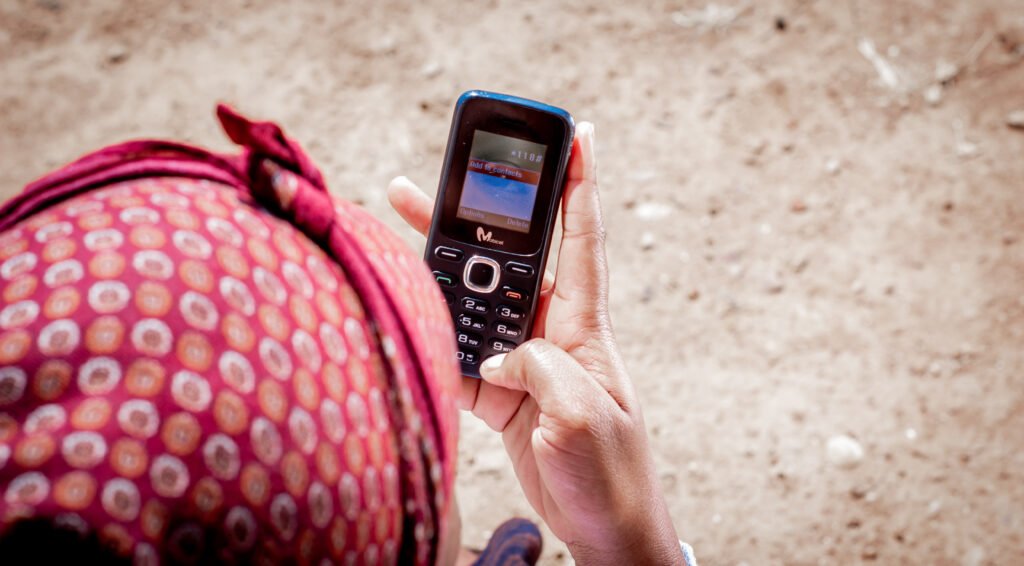By Busani Bafana
Naledi Magowe’s father doesn’t own a smartphone—but that has not stopped him from receiving information on crop prices and weather updates or calling the herdsboy at his distant cattle post to confirm the herd is safe and accounted for. Like millions of smallholder farmers across Africa, Ms Magowe relies on a feature phone to get and share information.
The difference is an innovative mobile app called mAgri, which delivers crucial agricultural information without the need for expensive data or smartphones. Developed by Brastorne, an awardwinning Botswana-based start-up, uses Unstructured Supplementary Service Data (USSD) technology – a simple internet-free system that works on any mobile phone without requiring any data. USSD allows users to create profiles, add friends, form chat groups, and even calls, says Ms Magowe, Brastorne’s co-founder and marketing director.
mAgri helps farmers to sell their produce and services nationwide through their phones where they can browse hundreds of products, compare prices, and even create their own mobile stores—all accessible via any handset, anywhere. The app is available in local languages, including Setswana, English and French. Brastorne co-founder and director Martin Stimela says the app has helped farmers increase yields by 250 percent while saving 85 percent in communication costs and information access.
Continental reach
Since it was launched, mAgri has connected 2.5 million users across Botswana, the Democratic Republic of Congo, Cameroon, and recently Guinea, with plans to expand to Mali, Burkina Faso and Malawi.
“A majority of smallholder farmers in Africa cannot afford smartphones or expensive data but they have feature phones, on which they can use the platform to connect farmers, youth and women to information and market resources,” says Stimela.
Brastorne’s impact earned it the top prize in the Heifer International 2022 AYuTe Africa Challenge, awarded to agritech innovators transforming farming in Africa. The competition, launched in 2021, challenges the youth to develop disruptive innovations that farmers need.
Brastorne received USD 1.5 million in grants, along with ongoing support from a team of expert advisers—accomplished business veterans—to help them scale up. “At a time when Africa is facing unprecedented food-related challenges, it is incredibly inspiring to see these young African champions firmly focused on an agriculture-led future that provides farmers with the innovations they need to succeed,” said Adesuwa Ifedi, senior vice president of Africa Programs, Heifer International. For Ms Magowe, the motivation was personal.
“The opportunities were vast for us to make the lives of our smallholder farmers easier, for example, both of our parents are farmers and we closely saw the challenges they experienced,” she said, noting that her father would need to drive about 100 km from his farm to the nearest Ministry of Agriculture office to get latest information on farming practices.
“Many farmers often lack transport to go and get agriculture information easily, so we realised these challenges and that all these farmers have phones and most of the phones they use are feature phones, so we created a solution for them that deals with market access needs and information needs using ordinary phones and not smartphones.”
Data from GSMA, a global organisation tracking global mobile connectivity, supports this vision. By 2021, SubSaharan Africa had 515 million mobile subscribers, with mobile penetration expected to reach 50 percent by 2025. This presents a huge opportunity to tap into the mobile platforms to deliver streamlined services to farmers, for instance. Ms Magowe says that mAgri builds an ecosystem around communication and social interaction between farmers, allowing them to share knowledge and advice and creating a strong community bond that goes beyond transactions.
But challenges remain. Forging partnerships with mobile network operators was a tall order, but once on board, it was easier to get more customers for the mobile service. She admits their USSD technology may become outdated in 10 years but insists there will always be a vast underserved population relying on feature phones and 2G networks. With 5G focusing on not more than 30 percent of the African population, Brastorne is keeping its eye on the majority who are not connected.
“We still have the 70 percent that is still unconnected, that is still to engage with the connected world and use feature phones and are in 2G network areas that needs to be serviced, there is the opportunity for us,” she said. “Our mission is to connect the unconnected to the world. Farmers say we have given them hope and they are excited to learn about what we are doing and they see it as convenient and helpful.” With mobile penetration in subSaharan Africa projected to rise to 50 percent by 2025, scalable, low-tech solutions like mAgri present huge opportunities

